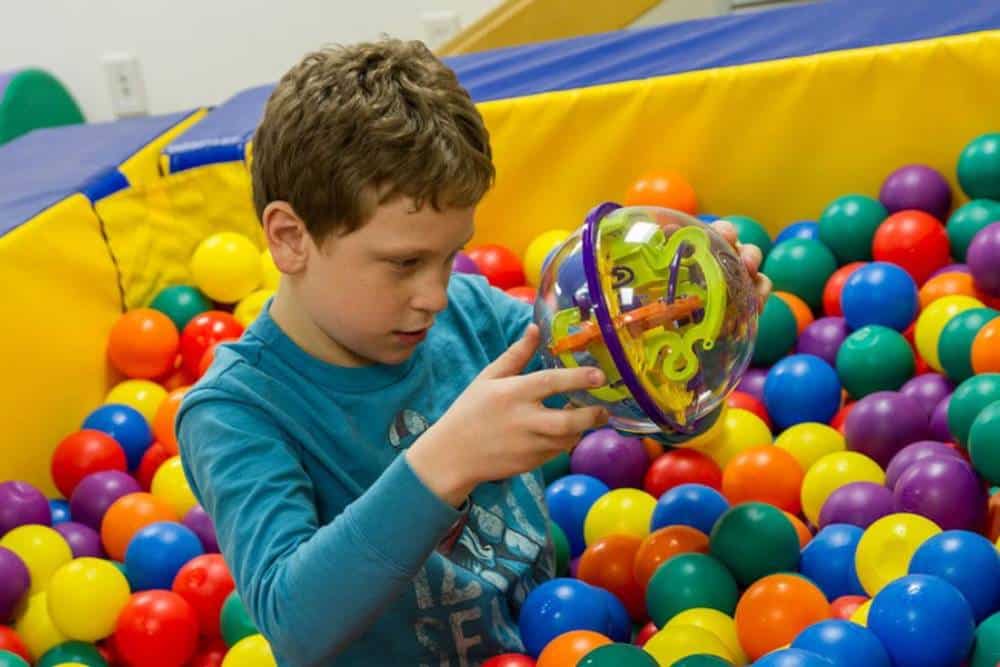With IM you can easily scale & grow your practice, all while achieving better patient outcomes!

Sensory Processing Issues: An Occupation Therapy Perspective on the Interactive Metronome
Published in American Journal of Occupational Therapy

Keywords
Pediatric, Academic Performance, Cognitive Skills, Motor Skills, Sensory Processing
In a published white paper, six Occupational Therapists share their clinical perspectives on the effectiveness of Interactive Metronome (IM) in addressing school, home, and social relationship problems in children with Sensory Processing Disorders.
The study suggests that Interactive Metronome (IM) training, when combined with sensory integration therapy, can enhance the outcomes of these treatments for children with Sensory Processing Disorder (SPD).
Even though children might experience temporary disorganization during and after IM training, it generally resolves leading to significant clinical improvement.
The IM training is adaptable and can be tailored to a child’s specific needs, providing intrinsic motivation.
It is suggested that the training facilitates the shift of conscious control to automaticity, freeing cognitive resources which in turn improves focus and behavior.
Moreover, therapists are investigating the broader applications of IM training in addressing issues such as vestibular function, body core strength, support, and other goal-directed activities.
The study discusses how IM training can improve conscious control, cognitive resources, focus, and behavior in children, and the exploration of expanded applications of IM in various therapy settings.
Abridged Summary & Results of Study
Theoretical and Clinical Perspectives on the Interactive Metronome®: A View From Occupational Therapy Practice
YEAR: 2001
PUBLICATION: AMERICAN JOURNAL OF OCCUPATIONAL THERAPY
AUTHOR: Jane Koomar, Jeannetta D. Burpee, Valerie DeJean, Sheila Frick, Mary J. Kawar & Deborah Murphy Fischer
RESULTS:
The Six (6) esteemed professionals from the field of Occupational Therapy provide their clinical perspectives on the Interactive Metronome (IM) and its effectiveness with children with Sensory Processing Disorders.
DETAILS:
- IM training, when used along with a sensory integration approach, may facilitate the ability to benefit fully or achieve even greater gains from sensory integration therapies
- IM training can be adapted to meet the individual needs of the child in a meaningful way that is intrinsically motivating to the child
- Temporary disorganization may occur in the child with Sensory Processing Disorder during and after IM training sessions, but typically resolves and is followed by greater clinical improvement
- Children use an inordinate amount of cognitive resources to accomplish daily activities at great expense to attention and ability to self-regulate – IM training appears to facilitate the conscious control initially then transitions conscious control to a level of automaticity, freeing up valuable cognitive resources for improved focus and behavior
- Skilled therapists are exploring expanded applications of IM in their practice settings to address such things as vestibular function, body core strength and support, and other goal-directed activities
Get IM Certified!
Getting Certified in Interactive Metronome is Easy! Attend a Live, Online Virtual Certification course and in one day you can start offering Interactive Metronome to your clients.
Education, Support & More!
We offer ongoing support and continuing education in Interactive Metronome so you can get the most from it. Learn how to profitably implement IM into your practice and help more patients in less time.
Our FREE on-demand library is chock full of specific short classes tailored to different populations and conditions as well as advanced IM application courses.
We routinely have Live webinars where you can sharpen your skills and learn the latest from clinicians.
And our clinical advisers are happy to help you with suggestions for particular clients.




